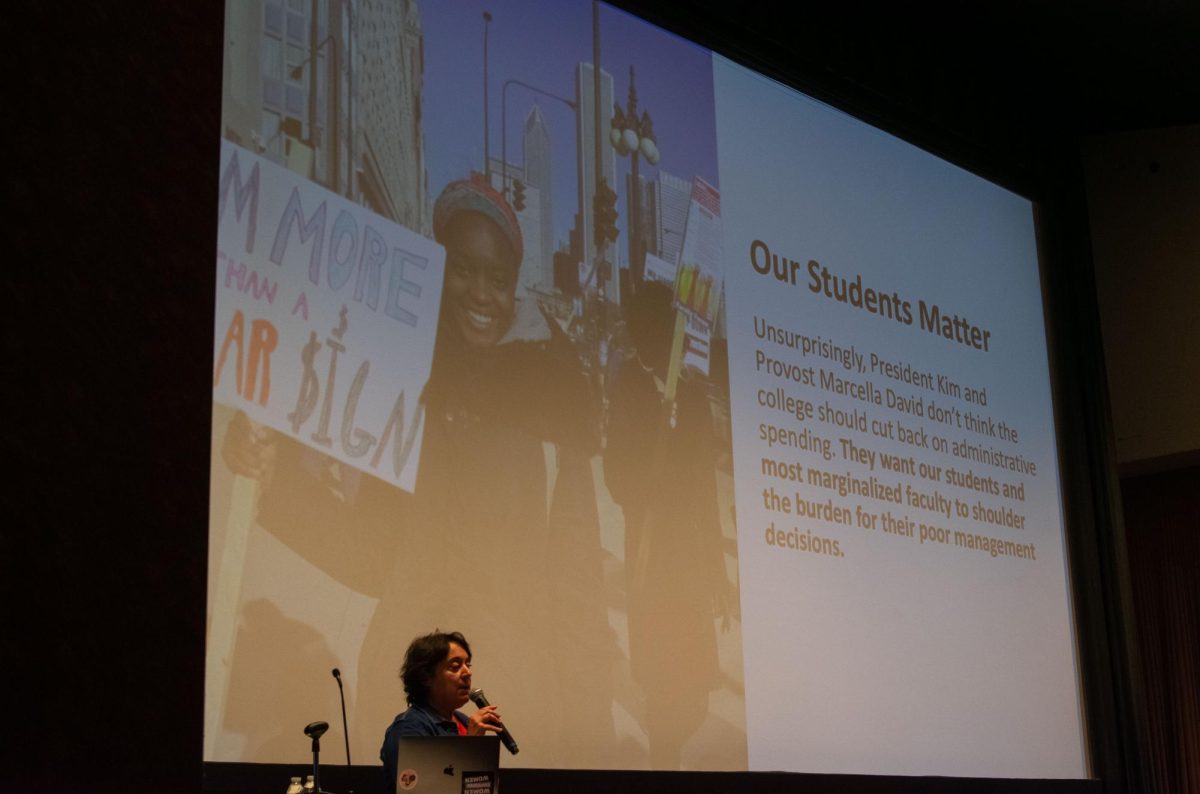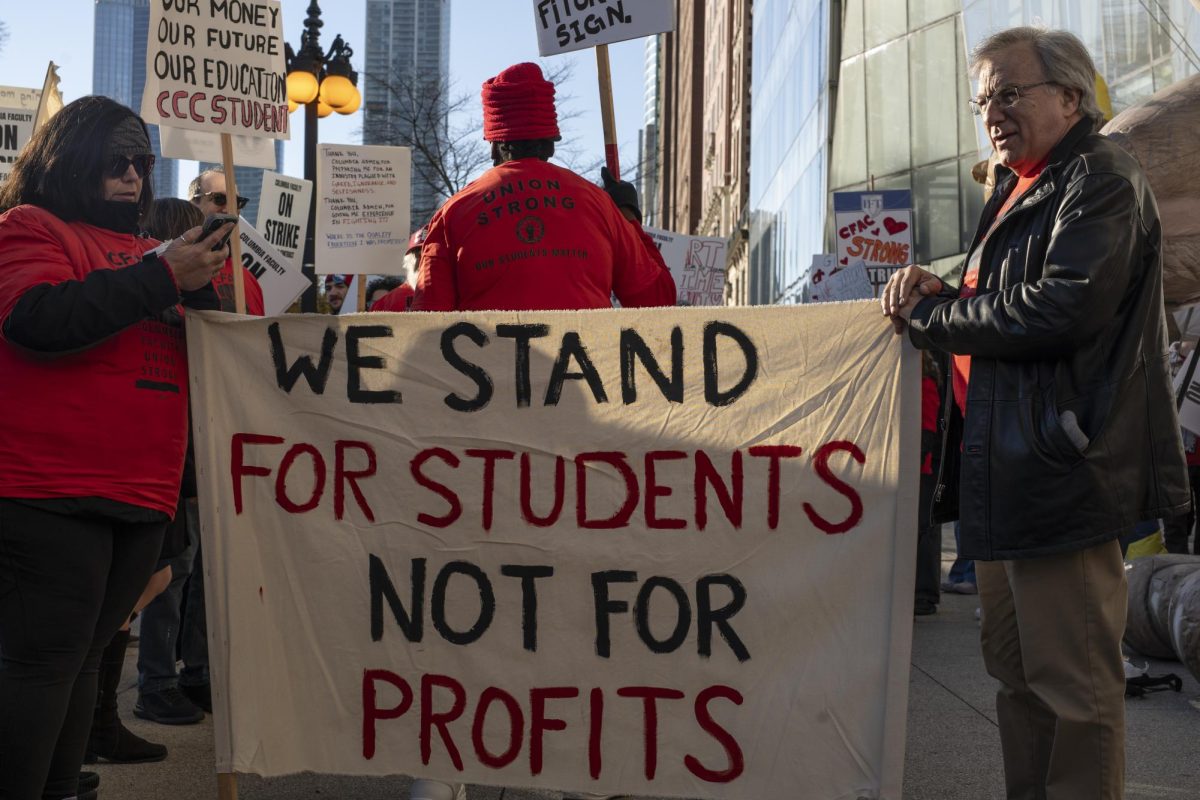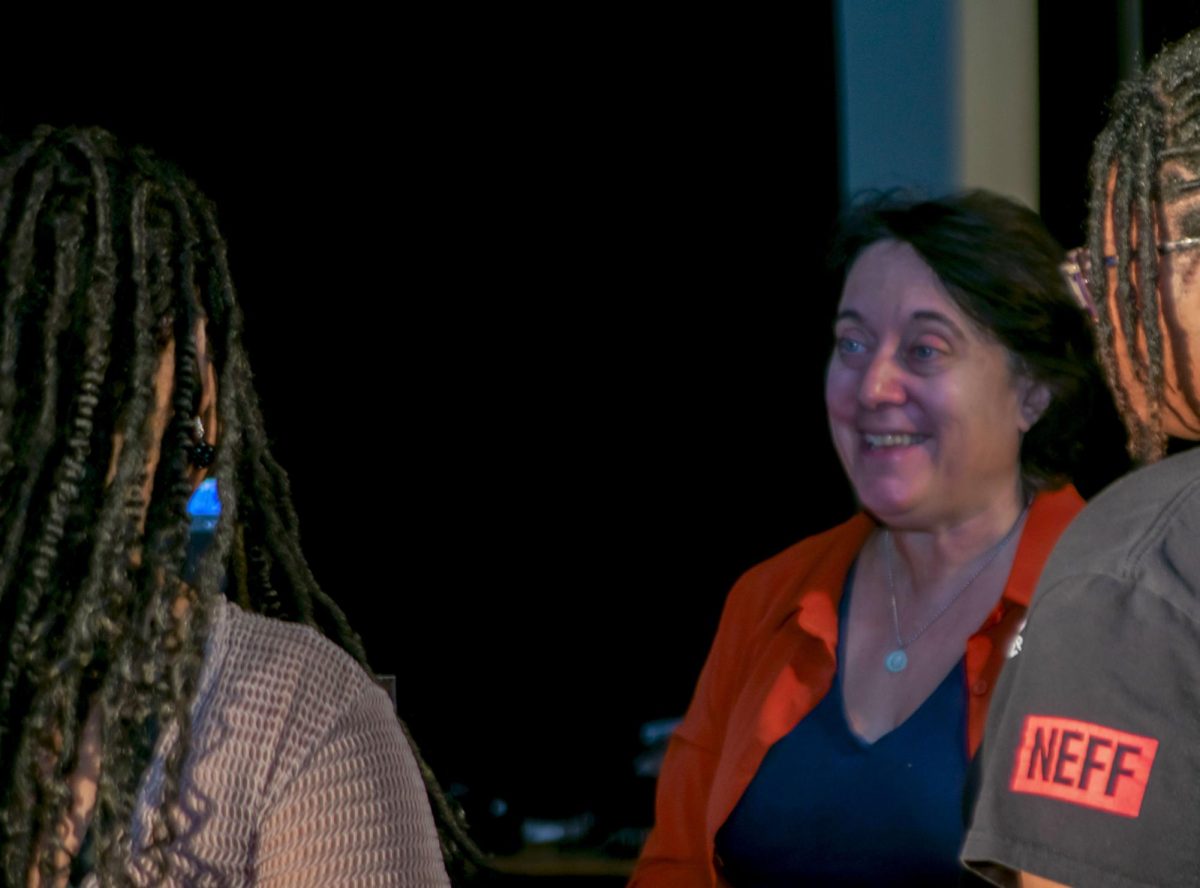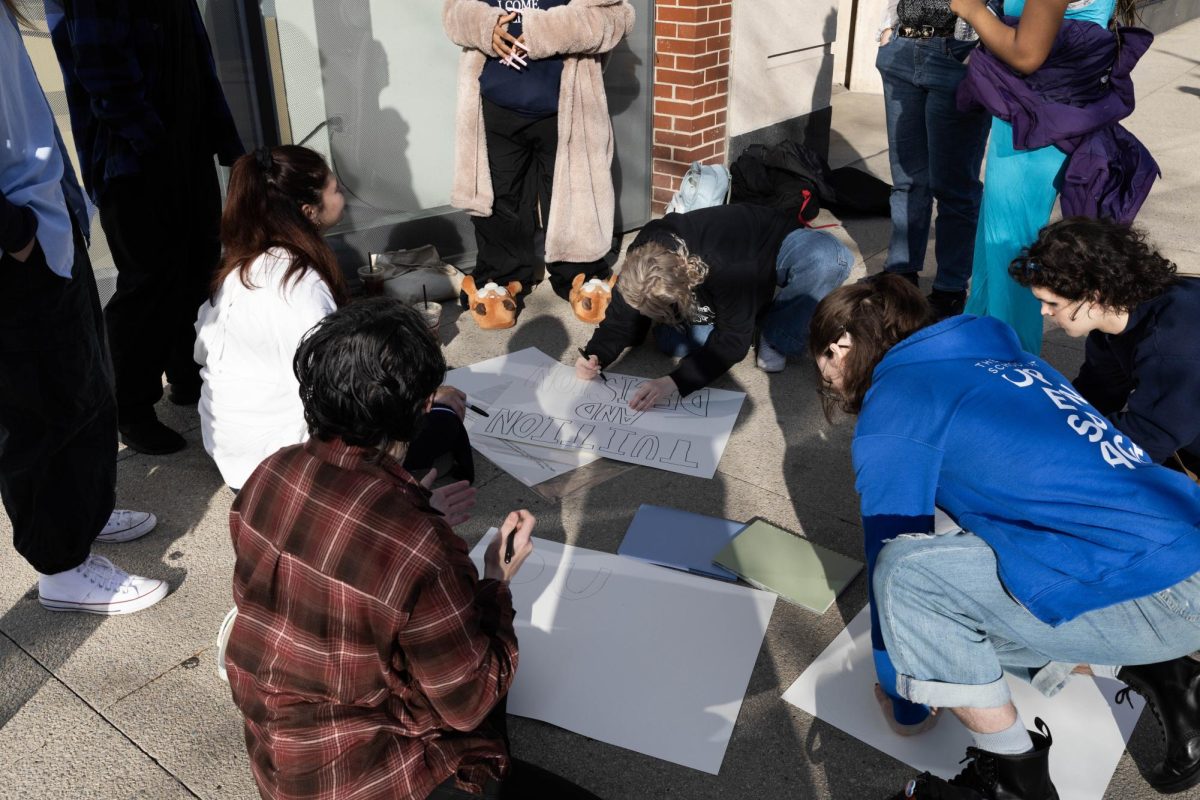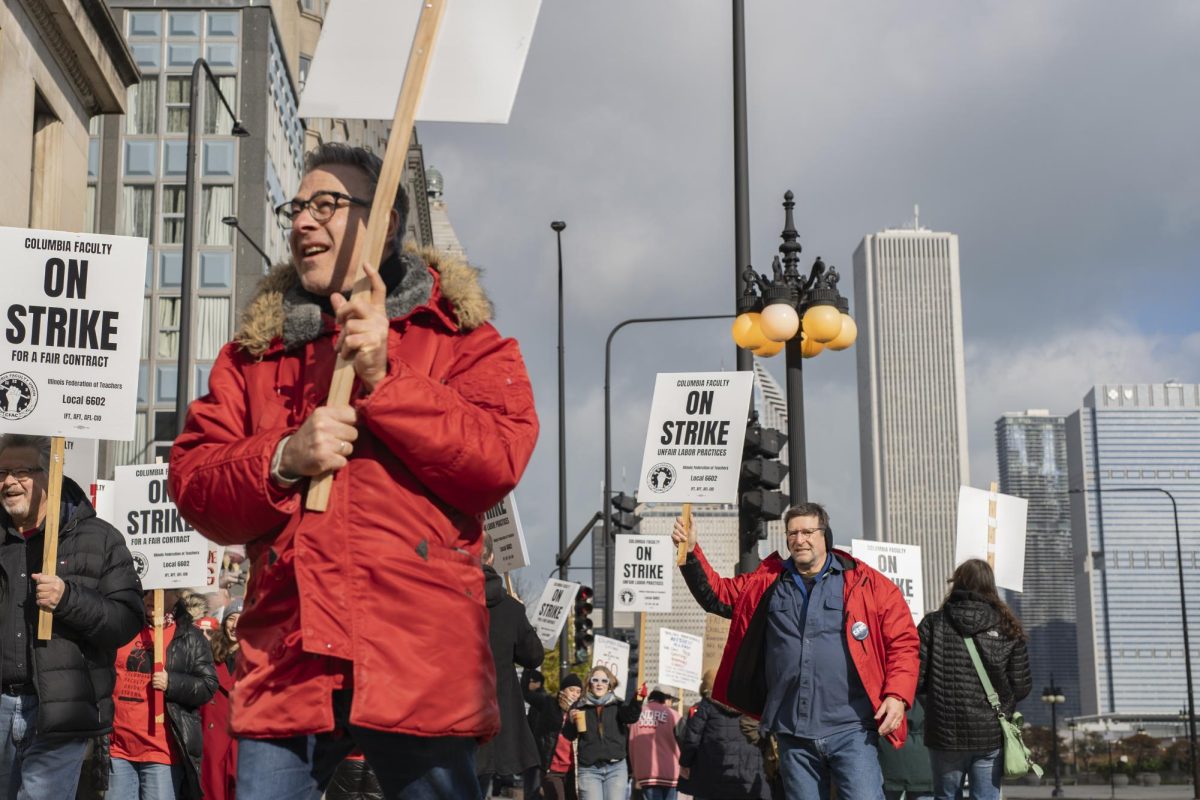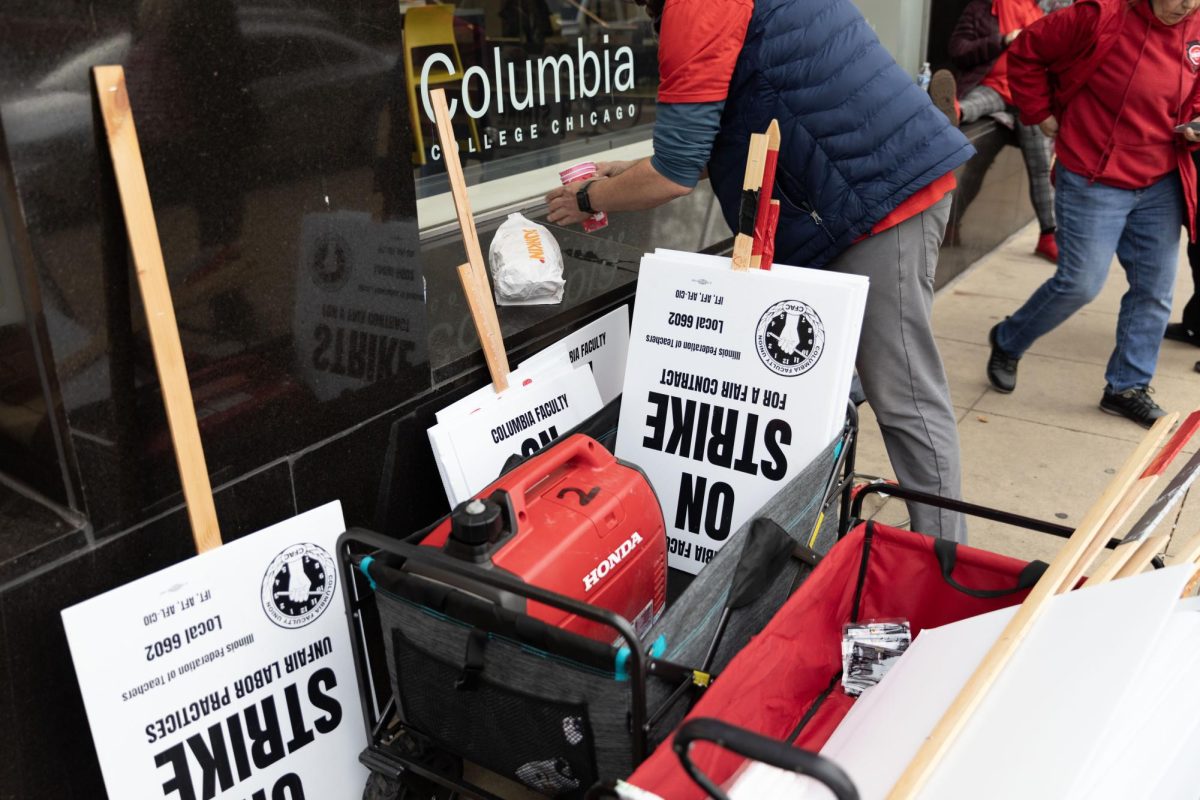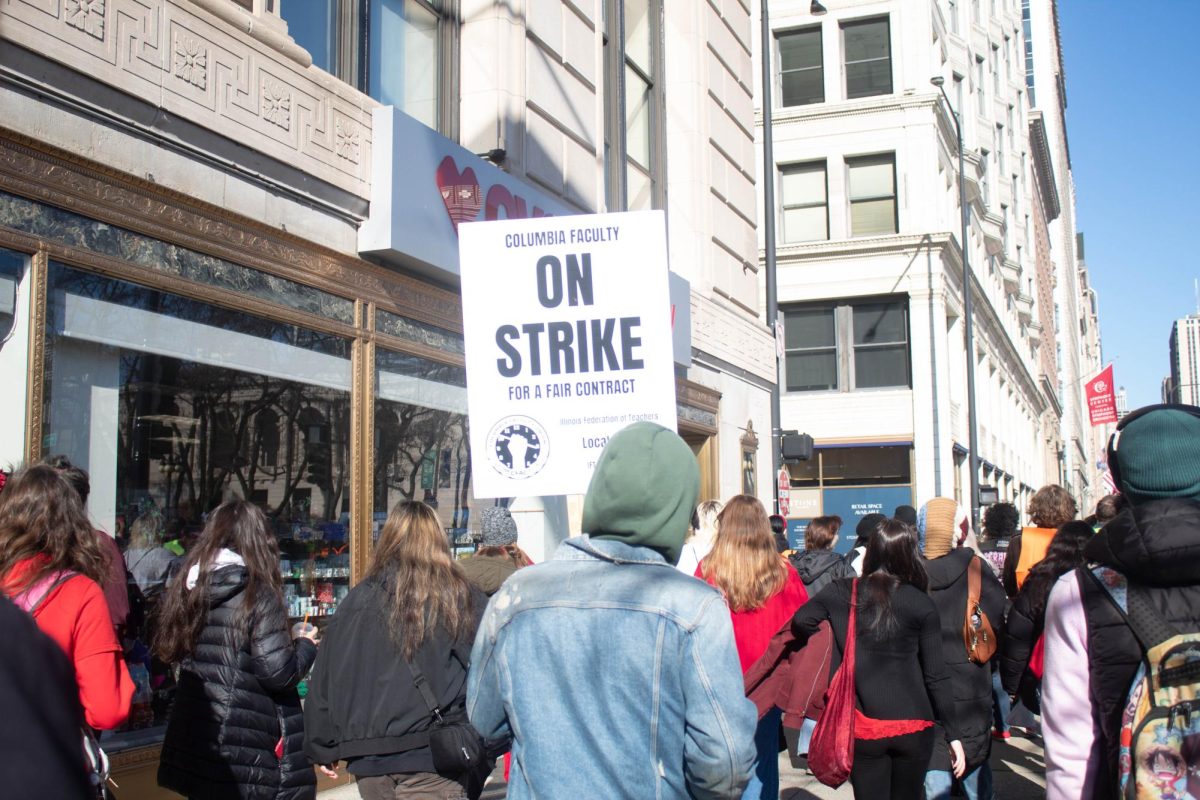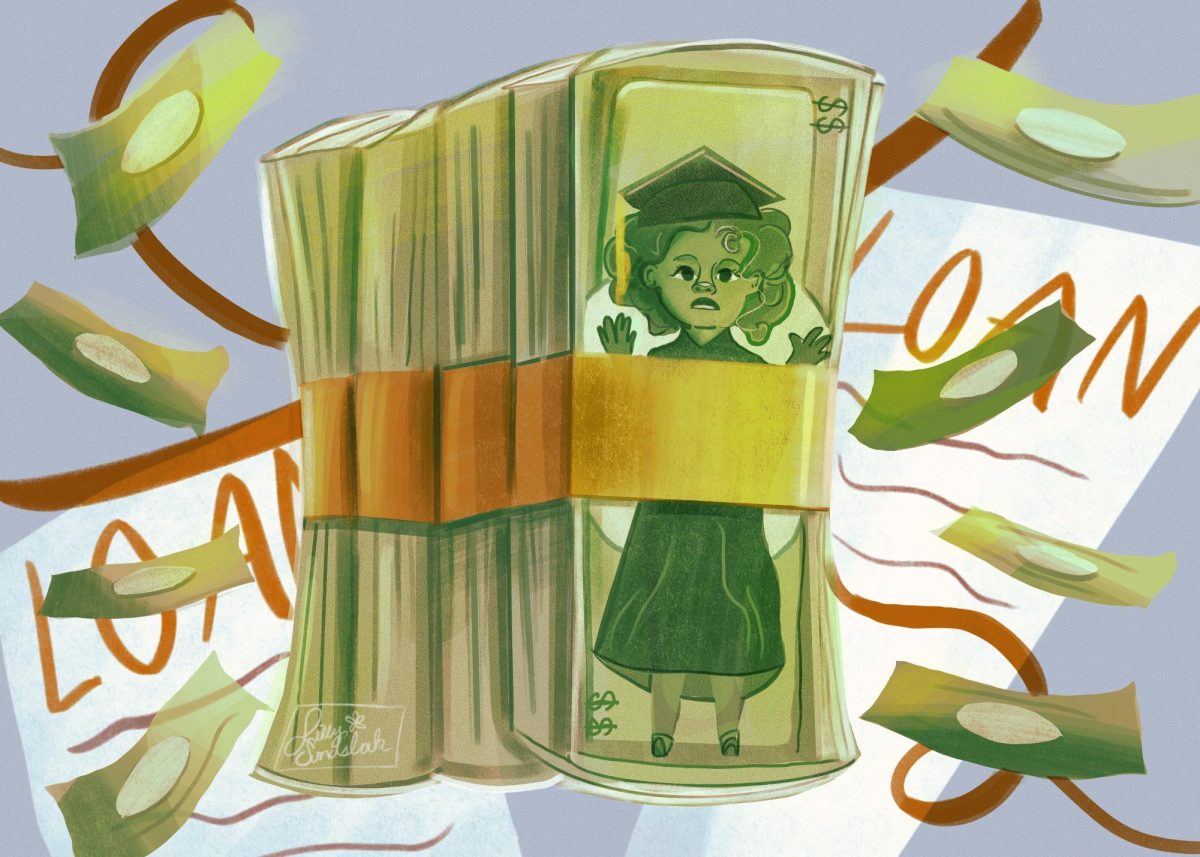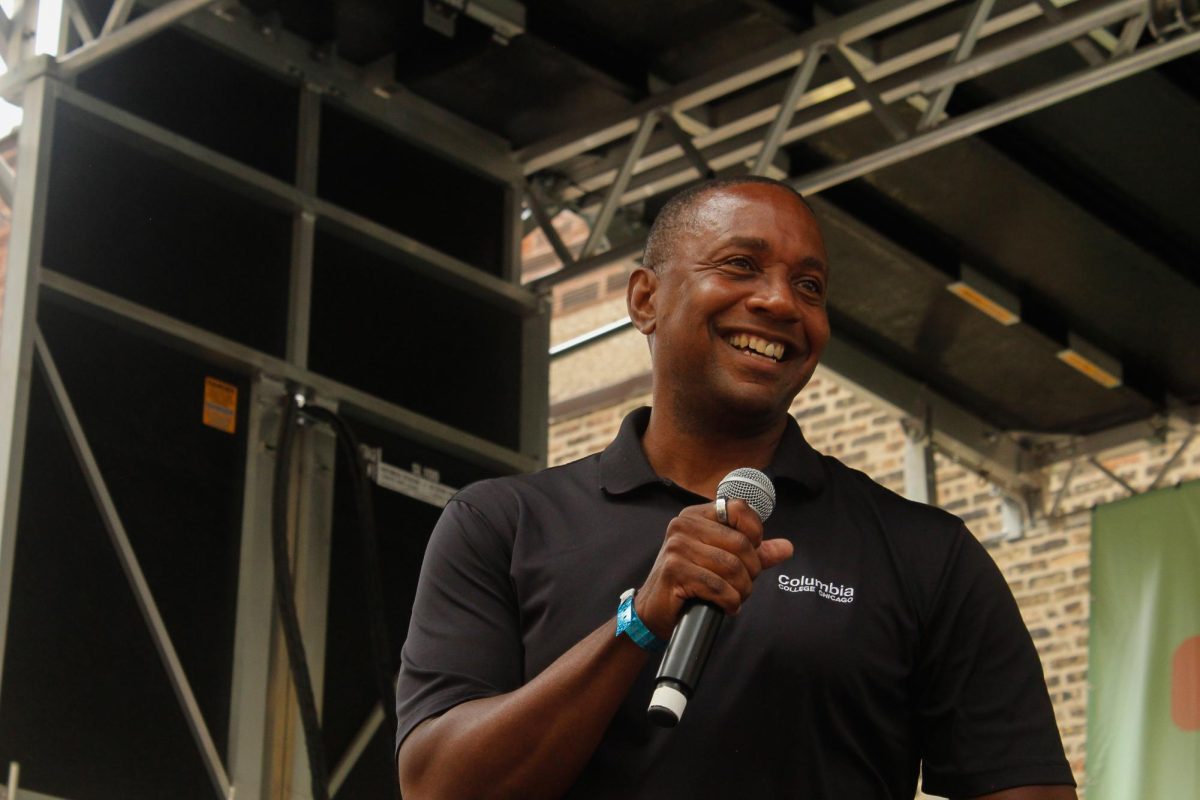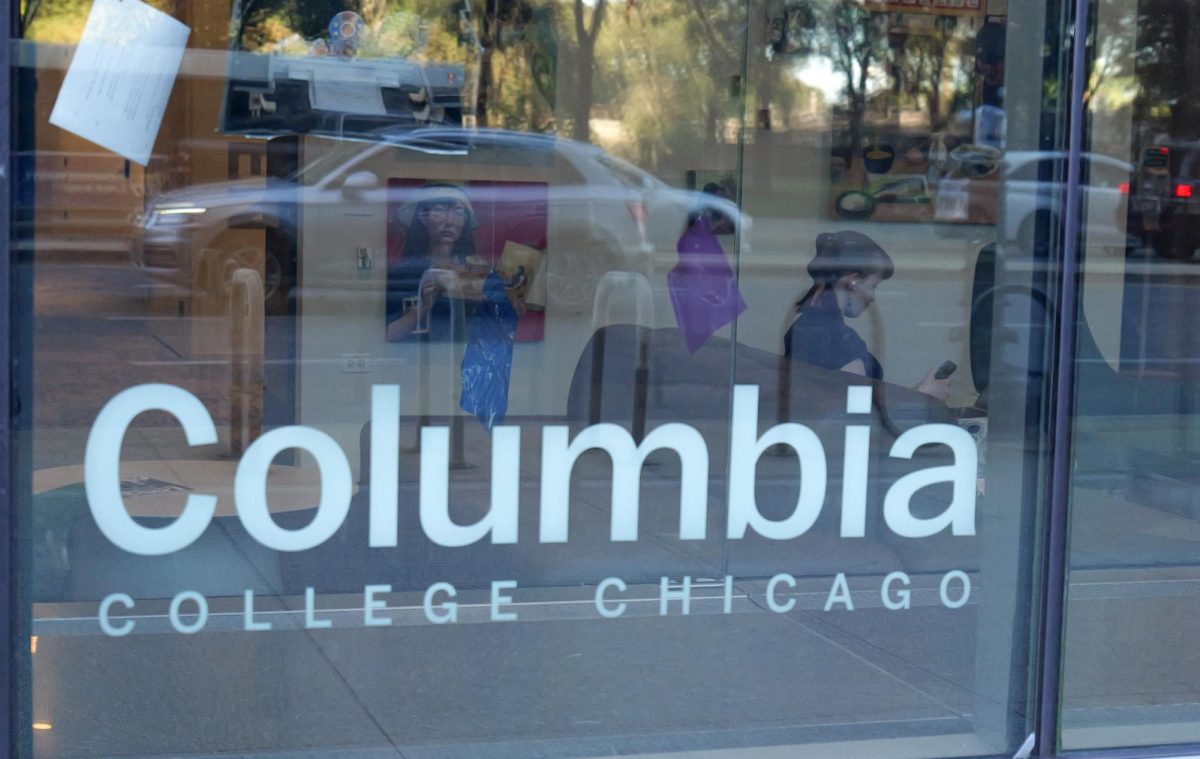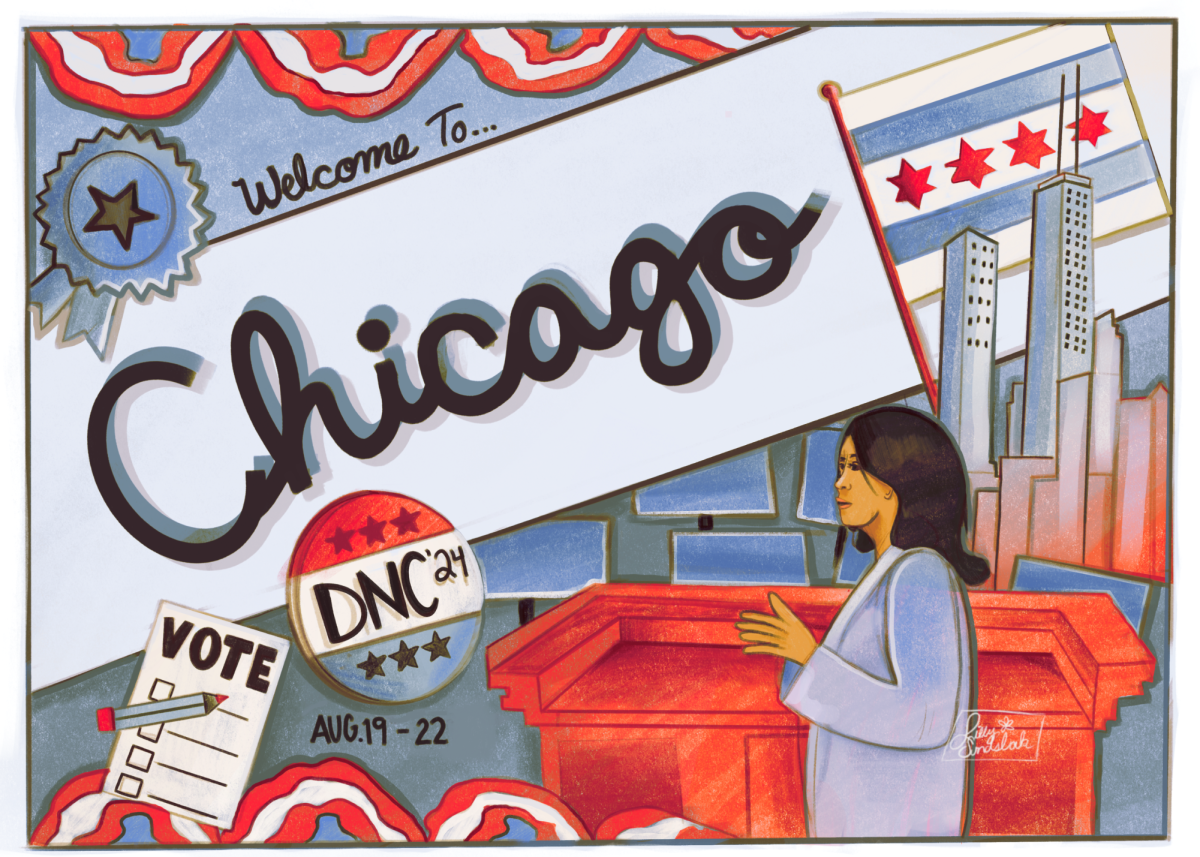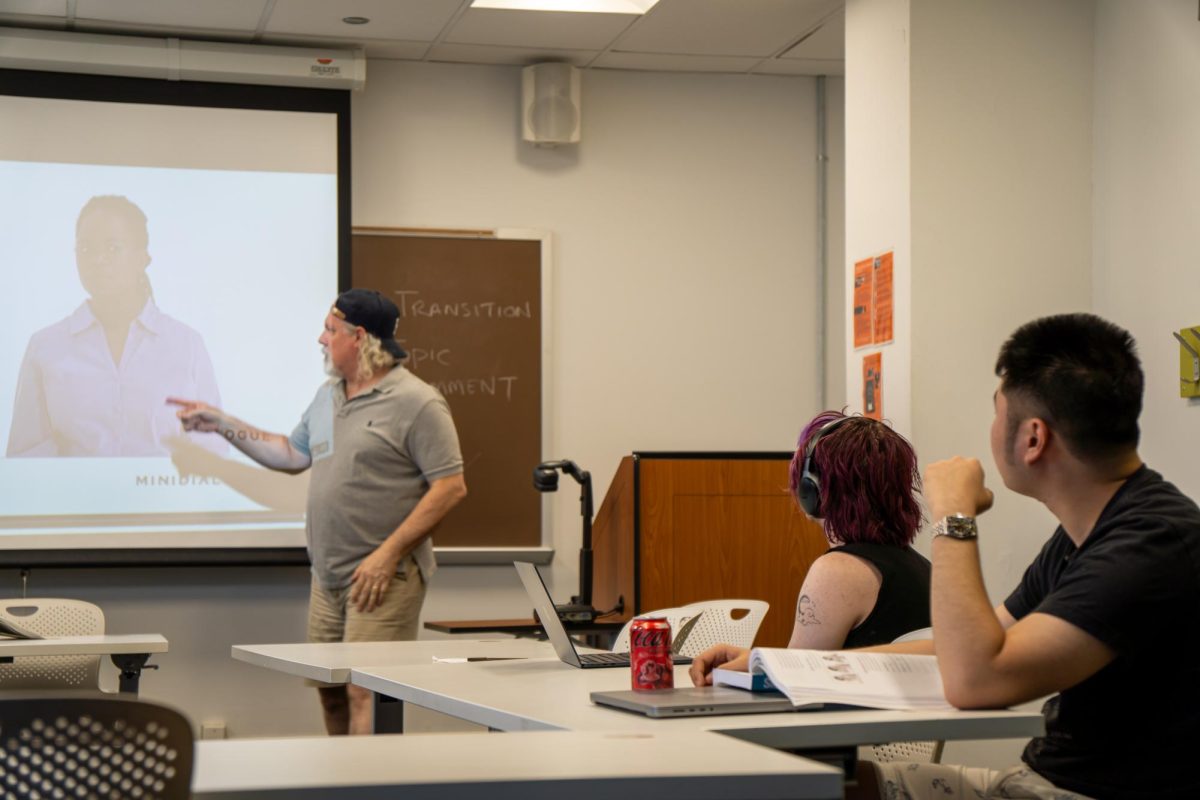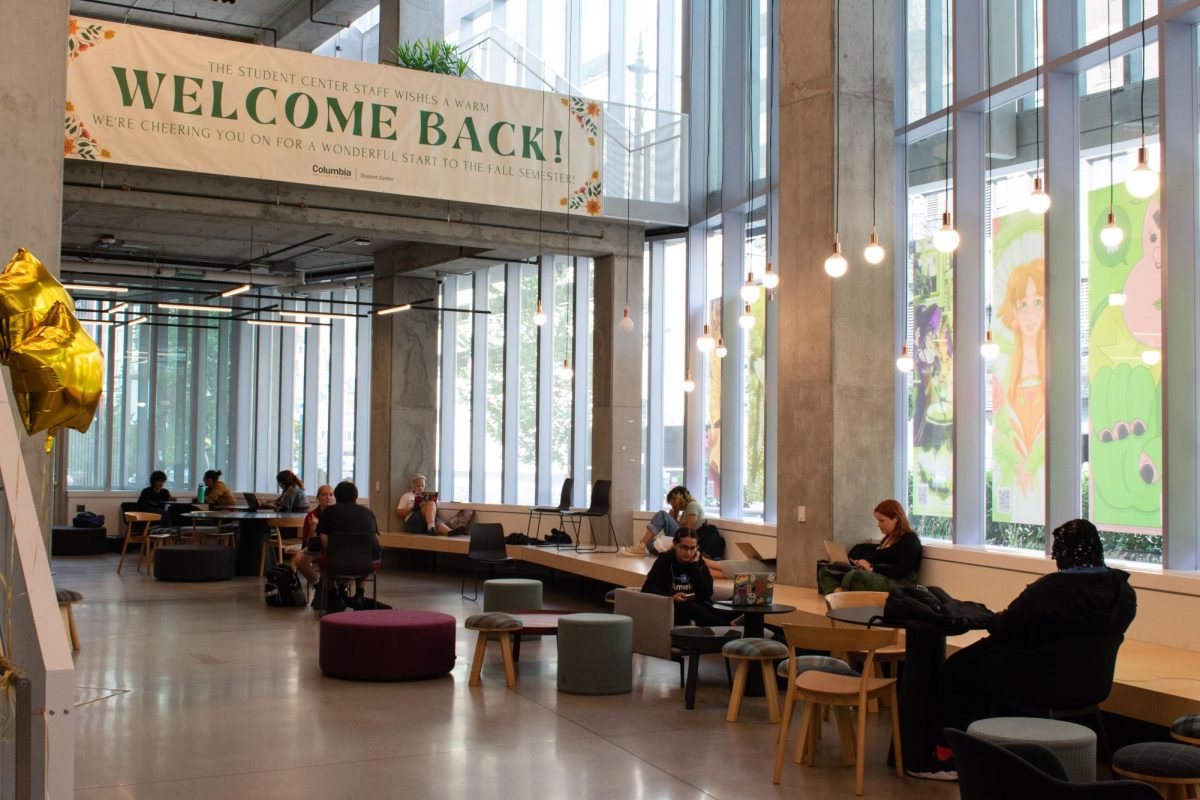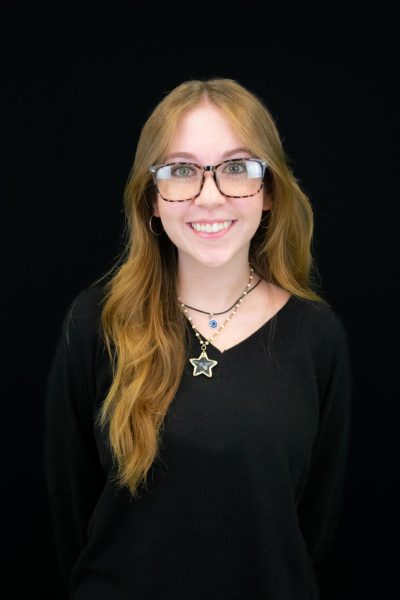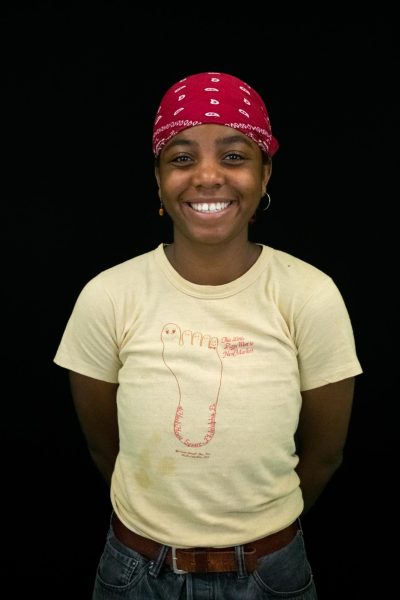The Columbia Faculty Union plans to hold a town hall on Friday, March 1. Billed “CFAC Town Hall 2,” the event at the 1104 S. Wabash building is reminiscent of one the part-time union held on Oct. 20, 10 days before going on strike last fall.
Students told the Chronicle they are worried about the upcoming town hall and the possibility for another strike. The strike in the fall was the longest adjunct walkout in US history and lasted seven weeks before a deal was reached in December.
But the new contract prohibits the union from striking again during the contract period.
According to the contract, if the union, its officers and members “engage or encourage a strike, sanction, sit-down, boycott, picketing, or support any collective bargaining issue,” the college can fire them.
Board of Trustees Chair John M. Holmes told the Chronicle that the clause in the contract prohibiting another strike during the four-year contract period was important.
“We’ve got to figure out how we’re going to be here for another century, and that opportunity absolutely exists,” Holmes said. “There’s a path here for sure. So we’re going to need everybody pulling in the right direction, and I hope the part-time faculty union starts moving in that direction.”
First year film and television major, Amelia LaRocca, said that a repeat of last semester would be her breaking point.
“Another strike that long would basically mean I missed a whole year of college. As difficult as it is to have to think about transferring, I would basically have no choice at that point,” LaRocca said.
Tyler Harding, president of the Student Government Association, told the Chronicle that he emailed the part-time union on Wednesday, Feb. 28 requesting that they notify students they did not intend to strike but never heard back.
“This came up following SGA’s senator concerns about the potential for and the effects of another strike,” Harding said.
The first town hall was also held at the 1104 S. Wabash building. Hundreds of students attended the event, which the union organized to protest cost-cutting measures the college was taking to address the financial deficit, which was about $18.5 to $19 million at the time.
The deficit has since grown to $38 million, which Columbia President and CEO Kwang-Wu Kim attributed to the strike.
The union demanded the immediate removal of the college president, no bonuses for any administration in the spring, fair treatment and payment of faculty.
Few of those initial demands were met, as the Chronicle previously reported, although Kim has since announced that he would step down on July 1. Jerry Tarrer will become interim president and CEO on July 2
First-year film major Vanessa Gonzalez said she and other students “already struggle” with the college raising tuition, faculty lay-offs and class cuts.
“I understand strikes happen for the betterment of things, but I’m curious to see what direction they would be taking this time around and how much it would actually benefit the student body, and the college as a whole,” Gonzalez said.
Sophomore journalism major Araceli Ramirez said that she “hopes another strike can be prevented.”
“I know so many students that love Columbia and have put hard work to attend and pursue their dreams, it’s sad that the decision of a few, Dr Kim’s administration, just adds to our collective stress,” Ramirez said.
Union President Diana Vallera, a part-time instructor in the Photography Department, said the town hall is meant for community members to share concerns and suggestions and will use them to develop “initiatives aimed at addressing the identified challenges and improving the overall well-being of our community.”
The college is in the midst of a major restructure at the direction of the Board of Trustees. This week, Kim shared a draft advisory report that would reduce the core requirements, potentially merge programs and lead to full-time faculty layoffs and the loss of teaching opportunities for part-time instructors.
“Some faculty (full-time and part-time) will no longer be able to teach Core courses, based on the new philosophy and criteria, and they will be impacted by this change,” the report stated. “While several tenured faculty in these departments are currently on phased retirements, additional action may be needed to adapt full-time faculty staffing levels to the revised Core requirements, resulting in the departure of full-time faculty – both tenured and non-tenured – beyond phased retirements.”
Vallera said hosting a second town hall provides an “opportunity to reflect on the strike, share our gratitude, voice concerns, and engage in constructive dialogue about important issues affecting Columbia.”
At the town hall the union will also be joined by leaders from SAG-AFTRA, the Writer’s Guild, Actor’s Equity and IATSE.
“There is a long tradition of unionism in the arts, and we look forward to meeting with students and faculty to extend the conversation,” Vallera said.
Additional reporting by Perla Valdez and Kaelah Serrano
This story has been updated.
Resumen en Español:
Estudiantes le dijeron al Chronicle que están preocupados por el próximo ayuntamiento de la Unión de la Facultad de Columbia y la posibilidad de otra huelga. La huelga en el otoño fue la huelga adjunta más larga en la historia de los Estados Unidos y duró siete semanas antes de que se llegara a un acuerdo en diciembre.
Pero el nuevo contrato prohíbe que el sindicato vuelva a hacer huelga durante el período del contrato.
De acuerdo con el contrato, si el sindicato, sus funcionarios y miembros “se comprometen o fomentan una huelga, sancionan, se sientan, boicotean, hacen piquetes o apoyan cualquier tema de negociación colectiva”, la universidad puede despedirlos.


